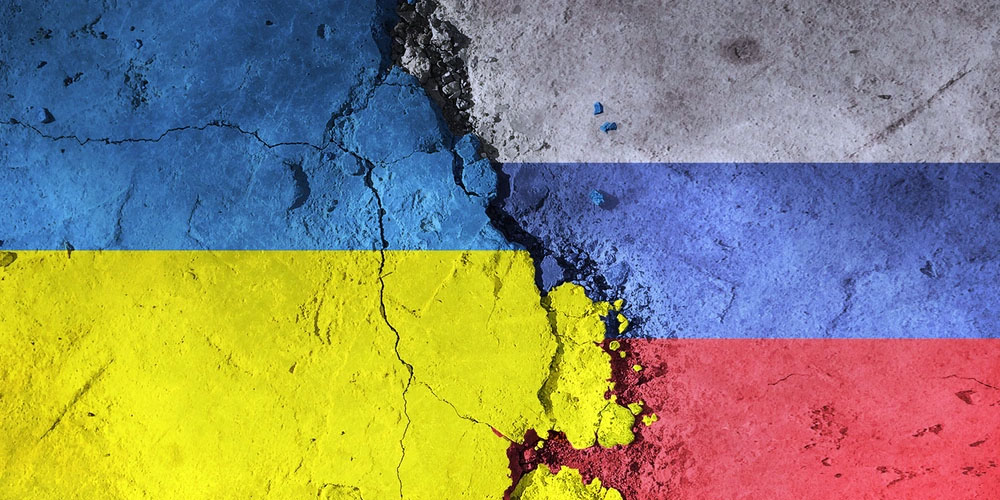The ongoing conflict between Russia and Ukraine has cast a long shadow over the global economic landscape. Its impacts are wide-reaching, affecting not only the directly involved nations but also the broader international community, including Europe, North America, and Asia. Understanding these economic repercussions is crucial to grasping the potential future of global financial dynamics and the eventual resolution of the conflict.
For Russia, the economic toll has been severe. The country faces extensive international sanctions that have significantly curtailed its access to global markets and financial systems. These sanctions have hit key sectors such as energy, finance, and technology, leading to a sharp decline in economic growth and a contraction of its GDP. The persistence of these sanctions, coupled with the ongoing conflict, is likely to exacerbate economic challenges, potentially leading to a prolonged period of recession and instability within Russia.
Ukraine, meanwhile, has endured devastating effects on its economy. The conflict has caused massive infrastructure damage, disrupted vital industries, and resulted in a substantial reduction in economic output. The destruction of agricultural and manufacturing sectors has further undermined the country’s economic stability. Reliant on substantial international aid to sustain its economy and war efforts, Ukraine’s economic future remains precarious. Continued dependence on external financial and military support will be crucial for Ukraine’s ability to manage the ongoing crisis and recover in the long term.
The ripple effects of the conflict extend to nations that have supported Ukraine, including the United States, Canada, and European countries, as well as Asian nations with economic ties to both Russia and Ukraine. The imposition of sanctions on Russia has led to a spike in global energy prices, disrupted supply chains, and contributed to rising inflation across these regions. European countries, heavily reliant on Russian energy supplies, have faced particularly acute challenges. The need to find alternative energy sources has driven up costs, impacting businesses and households alike and contributing to broader inflationary pressures.
In North America, while less directly impacted by energy price hikes, the conflict has caused disruptions in global supply chains, leading to shortages of essential goods and materials. This has contributed to inflation and slowed economic growth. The U.S. has also committed substantial financial and military assistance to Ukraine, further straining its budget and increasing its national debt.
Asian countries, which have traditionally maintained strong economic relationships with both Russia and Ukraine, are experiencing economic disruptions as a result of the conflict. Trade route interruptions and sanctions have affected export and import activities, leading to slower economic growth. The heightened uncertainty and volatility in financial markets have also contributed to economic challenges in the region.
The economic ramifications of the conflict are likely to play a significant role in its eventual resolution. Russia’s economic difficulties may limit its capacity to sustain prolonged military operations, potentially leading to either a scaling back of its activities or a push for a negotiated settlement. Conversely, Ukraine’s continued resistance will hinge on the ongoing support from Western allies. A reduction in this support could jeopardize Ukraine’s position and potentially lead to a compromise or stalemate.
In the longer term, the conflict may accelerate shifts in the global economic order. The current situation underscores a growing trend toward reducing economic dependencies and reassessing global trade relationships. Countries are increasingly cautious about their reliance on foreign powers, particularly those that pose strategic risks. This could lead to a more fragmented global economy, with nations seeking to bolster their self-sufficiency and diversify their economic partnerships.
In summary, the conflict between Russia and Ukraine will have profound and lasting effects on the global economy. Both Russia and Ukraine will face extended economic challenges, with Russia grappling with the impact of sanctions and Ukraine managing the repercussions of wartime destruction and reliance on foreign aid. Supporting nations will also experience significant economic strain, from energy price increases to inflation and supply chain disruptions. The eventual resolution of the conflict will be heavily influenced by these economic factors, which could lead to either a prolonged struggle or a negotiated settlement. As the situation evolves, it will reshape the global economic landscape, pushing nations toward a more cautious and fragmented approach to international economic relations.
